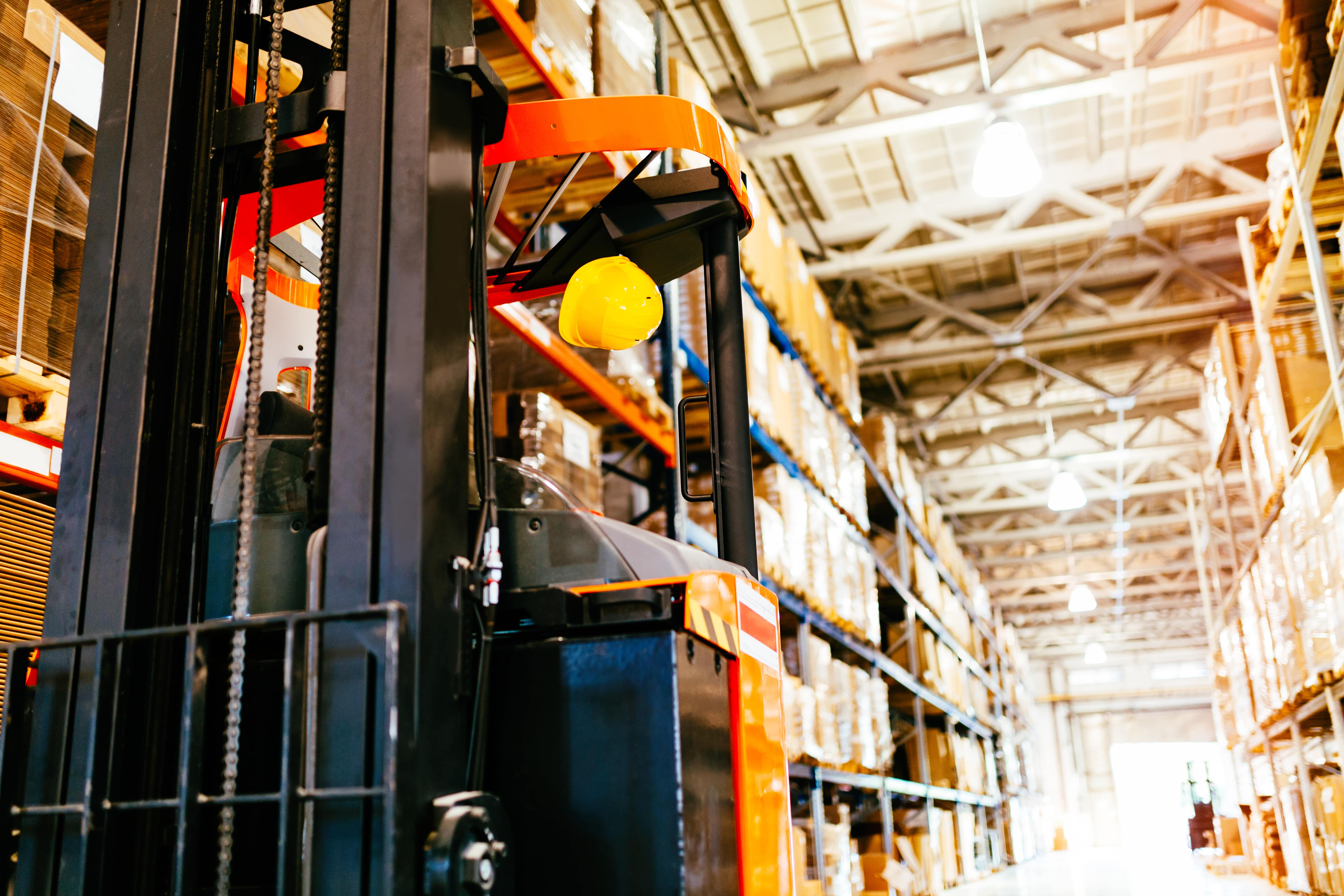One of the most cutting-edge technologies companies must use to stay ahead of the curve is Artificial Intelligence (AI), which can completely transform procedures...

One of the most cutting-edge technologies companies must use to stay ahead of the curve is Artificial Intelligence (AI), which can completely transform procedures, decision-making, and overall efficiency. Based on data from Statista, artificial intelligence (AI) has become widely used in the supply chain solution industry since it has improved inventory management, smart manufacturing, dynamic logistic systems, and real-time delivery controls.
Implementing AI tools in supply chain and logistics is primarily about boosting productivity and efficiency. Today, every organization is wondering if digital transformation can help their supply chain business, especially now that artificial intelligence (AI) has been incorporated into supply chain management and sustainability has increased.
A new McKinsey research claims that the application of AI has significantly enhanced supply chain management and logistics. This demonstrates how artificial intelligence is essential to the modern corporate environment and how it can fundamentally change the supply chain management industry.
This blog will focus on the advantages of data analytics and AI in the supply chain.
Let's now investigate how AI affects supply chains from a business standpoint. We will also examine how integrating AI development services into your company will allow labor, tools, and software to work together.
Although there are numerous potential benefits to employing AI in supply chain and logistics management, there are also challenges and considerations. When applying AI to supply chains, two major issues are integrating data and guaranteeing security. Let's examine a couple of other difficulties as well:
Businesses must actively work to reduce waste, conserve resources, and minimize carbon emissions. Adopting these green practices not only helps the environment but also enables companies to cut costs, boost productivity, enhance responsiveness, and strengthen their brand image.
Artificial intelligence plays a pivotal role in driving these sustainable logistics practices. AI technology enables precise tracking and reporting of emissions across the entire supply chain. By leveraging AI-powered transportation management systems, companies can identify areas of the business with high carbon emissions and implement reduction plans that allow for collaboration across the entire network. This optimization not only lowers operational costs but also significantly contributes to emission reduction targets.
Moreover, AI-enabled technology facilitates real-time monitoring of supply chain activities. These tools provide granular data on energy usage, waste production, and emissions, enabling organizations to identify inefficiencies and take proactive steps to address them. AI's ability to analyze this data helps companies develop strategies for emission reduction, ensuring compliance with environmental regulations and advancing their sustainability goals.
To fully grasp the transformative potential of AI in the supply chain, it's crucial to first explore its current applications. For enterprises with the necessary resources, AI can be leveraged at virtually every point in the supply chain.
Effectively managing an end-to-end supply chain involves navigating and analyzing vast data sets from numerous stakeholders and sources. AI and machine learning have the capability to identify patterns within this data at a speed and accuracy far beyond human capabilities. This allows businesses to implement proactive strategies as their supply chains become increasingly complex.
Moreover, advancements in supply chain technology play a pivotal role in enhancing transparency. For organizations, this is particularly vital as they navigate an ever-expanding array of global regulations, including those related to sustainability and ethical labor practices.
The strategic deployment of AI within supply chain management can lead to substantial improvements by pinpointing the most impactful areas for pattern recognition. AI's strength lies in its ability to continuously monitor, detect, and address issues within the supply chain that may be overlooked by human oversight. This ensures that underlying causes are targeted, driving more effective and sustainable solutions than traditional approaches can offer.
Leaders in supply chain can use AI in their organizations in many ways. Just a few examples below:
Gartner predicts that "The growth of IIoT will enable supply chains to more effectively deliver more differentiating services to customers."
Supply chain companies will prioritize results over products, rendering traditional business models outdated. This change will make organizations more capable of making decisions, increasing performance, and encouraging ongoing development.
Implementing the most recent SaaS (Software as a Service) and cloud-based technologies becomes a calculated decision. Large IT and OT (Operational Technology) budgets enable businesses to outperform and compete with multinational corporations.
We are about to witness a dramatic shift in the way systems work. Rather than being event-reactive, these systems will become predictive, adaptive, and self-learning. PwC estimates that by 2030, AI applications might transform corporate processes and increase the world economy by up to $15.7 trillion. Artificial intelligence (AI) can now aid in supply chain efficiency by bringing much-needed precision and agility. Automating tedious manual operations can also significantly decrease expenses and increase supply chain and operational efficiencies.
Businesses can utilize Digital Twins, which are virtual replicas of systems, processes, tangible goods, or even consumers, to anticipate disruptions to the global supply chain. They are especially useful in the supply chain for consumer goods since they may anticipate disruptions before they happen and lower risk.
In a November 2022 CGT/EnsembleIQ poll, 21% of retailers and consumer products manufacturers were asked about their goals for supply chain innovation, and 24% stated they had already used digital twins, while the remaining 24% planned to do so. Twenty-one percent said they weren't interested or didn't know (or it wasn't relevant to them), and thirty-four percent said they didn't have any plans to add them but wanted to know more.
Over the next several years, supply chain management is anticipated to become more and more dependent on AI, which will help companies optimize operations and compete in a global marketplace. As the industry grows and adapts, artificial intelligence will play a crucial role in developing new techniques and technologies that will influence logistics network management in the future.
AI-enabled sensors and IoT technology will allow businesses to monitor their supply chain activities in real time, providing meaningful data that can aid in decision-making. In order to enhance operations, collaborative AI will also connect different parts of the logistics network and communicate with suppliers, customers, and partners. Real-time information and insight exchange between the firms will enhance supply chain operations.
TADA is the leader in Ultimate Command & Control for Supply Chains, which enables businesses to connect the siloed parts of their networks to deliver real improvements in cost, cash, carbon, and revenue. Powered by its proprietary, AI-enabled digital twin platform, TADA's solutions offer the best time to value in the industry, providing real-time visibility, actionable insights, and multi-enterprise collaboration and orchestration that empower businesses to take charge of their supply chains.
Test your own scenarios with TADA’s Clean TO! Build and see the impact in minutes.
Try TADA Clean TO! Build
Test your own scenarios with TADA’s RM Inventory Manager and see the impact in minutes.
Try RM Inventory Manager

Use TADA’s Tariff Manager to model costs, build agility, and protect margins.
Try the Tariff Manager
Test your own scenarios with TADA’s Tariff Manager and see the impact in minutes.
Try the Tariff Managerest your own scenarios with TADA’s RM Inventory! Manager and see the impact in minutes.
TRY RM Inventory! Manager